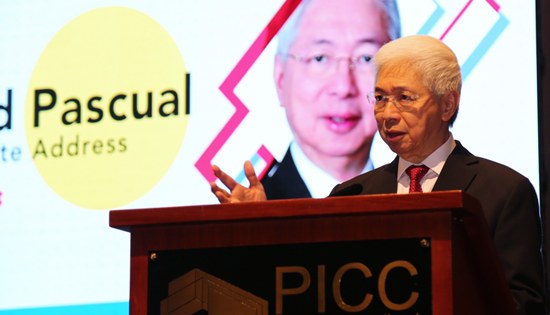Trade chief reiterates e-commerce as important tool for economic development

By
DTI-OSEC-Public
Relations Unit
November 4, 2022
MANILA – The
Department of Trade and Industry, in partnership with the Philippine
Bar Association, held the 1st eCommerce Congress on 4 November 22 at
the Philippine International Convention Center. The event brought
together government officials, members of the business sector, civil
society organizations, and other stakeholders to pursue the
overarching goal of strengthening eCommerce industry in the country.
The eCommerce Congress
tackled the Internet Transactions Bill, a top legislative priority
of President Ferdinand “Bongbong” Marcos, Jr., that aims to harness
the overwhelming potential of the eCommerce market.
Based on Google Temasek
Bain’s e-Conomy SEA 2022 report, the Philippines’ internet economy
continues its upward trend at 20% year-over-year to reach USD20
billion this year, with e-commerce propelling it to USD35 billion by
2025.
According to DTI, the
number of businesses on retail sales via the internet has increased,
while there has also been an increase in the number of consumer
complaints against online sellers. The time is thus ripe for a new,
relevant, and responsive eCommerce Law. In this light, DTI deems the
inputs of players in the internet economy as crucial to the
efficient crafting of legislative policies that respond to the
issues faced by the industry.
"We are grateful to the
DTI for our long-term partnership, founded on common goals. We
remain committed to supporting the eCommerce Road Map and regulatory
framework being built, and believe that together, we can help drive
the growth of the digital economy in the Philippines”, said Lazada
Philippines CEO Carlos Barrera.
Trade Secretary Alfredo
Pascual thanked the participants for their contribution to making
the eCommerce Congress possible to discuss the crucial policy
reforms to boost the e-commerce in the country. The event hoped to
promote a robust eCommerce environment in the Philippines, where
online businesses, especially small ones, can develop and compete
globally.
“We have all the
ingredients – the economic assets – to make this happen: a young and
digital native population, a growing middle class, available and
affordable technologies, and significant surpluses in the financial
sector. E-commerce is one of the most potent tools and fastest
routes in unlocking these economic assets toward sustained
accelerated economic development”, Secretary Pascual said.
Last year, DTI launched
the eCommerce Philippines 2022 Roadmap to employ strategies by the
government that will speed up and broaden internet transactions by
improving the digital infrastructure. The current administration is
bent on working on and enhancing this agenda to increase the
contribution of eCommerce to the Philippine economy with the
development of the eCommerce Philippines 2023-2025 Roadmap.
In closing, Secretary
Pascual mentioned that there are new laws and regulations related to
e-commerce that are currently being drafted, such as on privacy,
digital taxation, the gig economy, and pivoting to a cash-light
society.
“I hope that there will be
productive dialogues in these areas because we urgently need to
develop and improve our policies to create an enabling regulatory
environment for e-commerce to grow. With the brightest legal minds
of the country gathered here today, let me make a humble request and
professional challenge for all of us: Let these policy dialogues be
united by one purpose – better lives for all Filipino families, with a
target of a 9% poverty rate within six years”, he added.